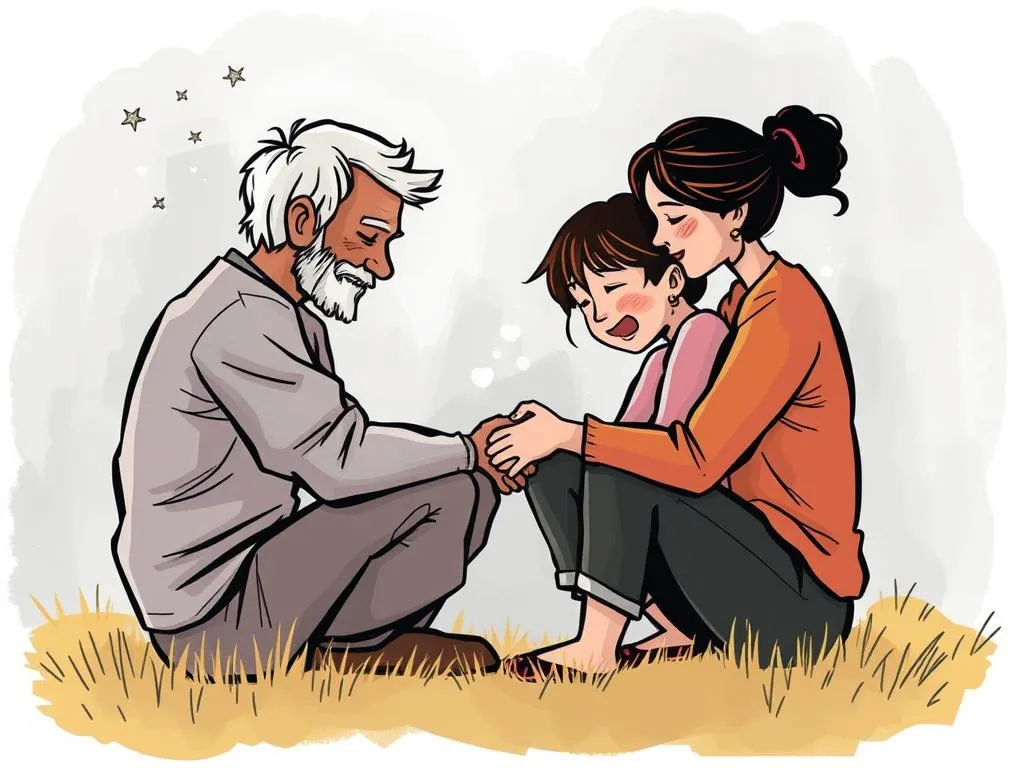Introduction
Hurting loved ones can be one of the most painful and challenging experiences we face in life. Whether it’s unintentional harm, a deep conflict, or a breakdown in communication, the emotional turmoil can leave us feeling lost, guilty, and unsure of how to move forward. However, the spiritual meaning of hurting loved ones goes beyond the immediate hurt – it’s a call to deeper self-reflection, compassion, and growth.
In this article, we’ll explore the spiritual meaning of hurting loved ones and discover how we can navigate this challenging terrain with wisdom, empathy, and a commitment to healing. By understanding the deeper significance of these experiences, we can find the courage to confront our own shadows, mend broken relationships, and emerge from the darkness with a renewed sense of connection and purpose.
Key Takeaways
- Hurting loved ones is a spiritual lesson: The pain we cause others is often a reflection of our own unresolved wounds, fears, and patterns of behavior.
- Compassion and forgiveness are key to healing: Cultivating self-compassion and extending forgiveness to ourselves and others is essential for breaking the cycle of hurt.
- Communication and understanding are crucial: Open, honest, and empathetic communication can help us bridge the gaps and find common ground.
- Personal growth and transformation are possible: Embracing the spiritual meaning of hurting loved ones can lead to profound personal growth and a deeper connection with ourselves and others.
The Spiritual Meaning of Hurting Loved Ones
When we hurt the people we care about, it can feel like a betrayal of the very foundation of our relationships. How could I have done this to someone I love? we might ask ourselves, plagued by guilt and shame. However, the spiritual meaning of hurting loved ones goes beyond the immediate pain and points to a deeper opportunity for personal growth and transformation.
At the core of this experience is the recognition that our actions and words have a profound impact on the people around us. When we lash out, withdraw, or fail to show up for our loved ones, we are not only causing them pain but also revealing the unresolved aspects of our own psyche. The wounds we inflict on others are often a reflection of the wounds we carry within ourselves.
This realization can be both humbling and empowering. By acknowledging our role in the hurt we’ve caused, we open the door to self-reflection, accountability, and the possibility of change. The spiritual meaning of hurting loved ones is a call to confront our own shadows, to face the parts of ourselves that we’ve been reluctant to acknowledge or heal.
The Path to Healing and Reconciliation
Navigating the aftermath of hurting a loved one can be a daunting and emotionally charged process, but it is also an opportunity for profound growth and transformation. Here are some key steps to consider on the path to healing and reconciliation:
1. Cultivate Self-Compassion
The first step in this journey is to extend compassion to ourselves. It’s natural to feel guilt, shame, and self-judgment when we’ve hurt someone we care about, but these emotions can often become a barrier to true healing. By practicing self-compassion, we can create the space to acknowledge our mistakes, understand the root causes, and begin the process of forgiveness.
2. Communicate Openly and Empathetically
Effective communication is essential for mending broken relationships. This means being willing to have difficult conversations, listen deeply, and seek to understand the other person’s perspective. It’s important to take responsibility for our actions, express genuine remorse, and demonstrate a sincere commitment to change.
3. Embrace Forgiveness
Forgiveness, both for ourselves and for the person we’ve hurt, is a crucial aspect of the healing process. This doesn’t mean condoning the hurtful behavior or minimizing the pain it caused, but rather releasing the hold that resentment and bitterness have on our hearts. Forgiveness allows us to move forward with compassion and a renewed sense of connection.
4. Commit to Personal Growth
The spiritual meaning of hurting loved ones is ultimately a call to personal growth and transformation. By examining the root causes of our hurtful actions, we can work to address the underlying issues, such as unresolved trauma, unhealthy coping mechanisms, or a lack of emotional intelligence. This process of self-exploration and growth can lead to a deeper understanding of ourselves and a greater capacity for healthy, fulfilling relationships.
The Transformative Power of Hurting Loved Ones
While the experience of hurting loved ones can be profoundly painful, it also holds the potential for profound personal growth and transformation. When we approach this challenge with courage, compassion, and a willingness to learn, we can uncover the spiritual meaning at the heart of this difficult experience.
By acknowledging our role in the hurt we’ve caused, we open the door to self-reflection and the opportunity to address the unresolved aspects of our own psyche. This process of self-exploration can lead to a deeper understanding of our patterns, triggers, and the underlying issues that contribute to our hurtful behaviors.
As we cultivate self-compassion and extend forgiveness to ourselves and others, we begin to break the cycle of hurt and resentment. This allows us to approach our relationships with a renewed sense of empathy, authenticity, and a commitment to creating healthy, fulfilling connections.
Moreover, the journey of healing and reconciliation can inspire us to become better versions of ourselves. By embracing the spiritual lessons inherent in the experience of hurting loved ones, we can develop greater emotional intelligence, strengthen our communication skills, and deepen our capacity for genuine intimacy and connection.
Conclusion
The spiritual meaning of hurting loved ones is a profound and challenging experience, but it also holds the potential for profound personal growth and transformation. By approaching this challenge with courage, compassion, and a willingness to learn, we can uncover the deeper lessons and find the strength to heal, forgive, and ultimately, build stronger, more meaningful relationships.
Remember, the path to healing is not always linear, and there may be setbacks and challenges along the way. But by staying committed to the process, embracing self-compassion, and cultivating a spirit of openness and understanding, we can emerge from this experience with a renewed sense of purpose, connection, and a deeper appreciation for the power of love and forgiveness.








